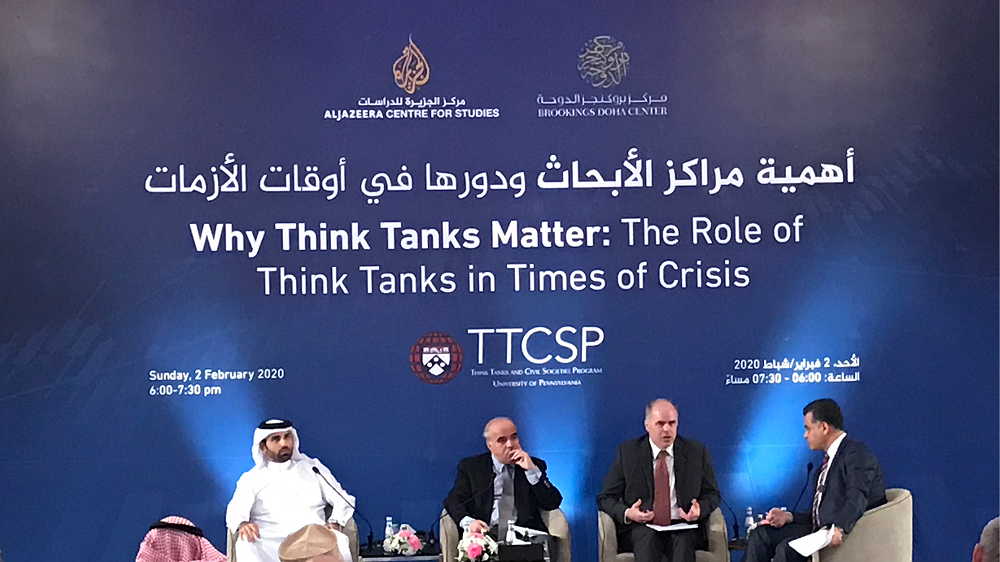
A research seminar was hosted by Al Jazeera Centre for Studies (AJCS) and Brookings Doha Center on Sunday, 2 February 2020, under the title, “Why Think Tanks Matter: The Role of Think Tanks in Times of Crisis.” The speakers were Mohammed Cherkaoui, Senior Researcher at Al Jazeera Centre for Studies; Nader Kabbani, Director of Research at Brookings Doha Center; and Nayef bin Nahar Alshammari, Director of Ibn Khaldon Center for Humanities and Social Sciences at Qatar University.
The seminar stressed the importance of think tanks and their research output, whether in the form of longer academic studies directed to knowledge makers or shorter summaries directed to the general public in aims of increasing awareness of current and future issues.
The speakers eased concerns about the impact of government funding on the content think tanks produce given that quality and integrity standards are adhered to. They also suggested that the interest of think tanks, in what is geographically known as the Middle East and North Africa (MENA), in their audiences and their audiences’ orientations is a means of influencing policy- and decision-making.
Moreover, the speakers emphasised that when think tanks adhere to research quality standards, they render the process of policy- and decision-making, particularly in the Arab world but also in the Middle East overall, more accurate. In turn, decision-makers become more interested in them and are more inclined to help them overcome the obstacles they face.
The seminar shed light on the importance of a democratic climate and laws regulating the exchange of information in facilitating the work of think tanks and providing the data needed to make research output representative of reality and engage with relevant issues.
On the other hand, speakers also indicated the criticality of sorting and analysing information, especially with the current age of communications and information technology making the verification of credibility difficult.
Finally, panellists concluded by asserting the importance of bridging the gap between decision-makers and the research domain for mutual benefit, especially if there is convergence, coordination and mutual trust.
The seminar took place on the occasion of the release of the 2019 Global Go To Think Tank Index (GGTTI) by the Think Tanks and Civil Societies Program (TTCSP) at the University of Pennsylvania. AJCS was ranked first in the Gulf region for the third year in a row among a total of 62 think tanks and the fourth in the MENA region among a total of 507 think tanks, a step up from last year. It is still the only Arab think tank among the global think tanks applying the best quality assurance and integrity policies and procedures and ranked 55th in the world.